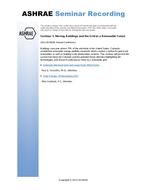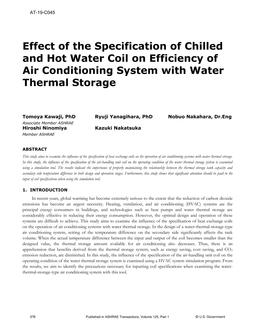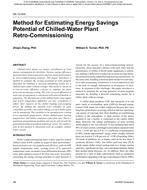For HVAC engineers working in tall buildings, the envelope leakage area of the building is a key factor in determining the internal pressure differences and airflows due to stack effect. This is an important concern in colder climates, as these pressure differences and airflows can result in much larger heating loads on lower floors than upper floors, in unbalanced performance from internal air handling systems, and significant interference with some types of smoke control systems. This objective of this research is to describe and assess all the measurement procedures and techniques that have been used for measurements reported in the literature on whole-building envelope leakage and recommending a procedure that offers the best compromise in terms of a useful measurement of uncontrolled leakage through all or part of the building envelope, at a minimum cost in terms of expertise and equipment required, disruption to normal building operation, and need for special weather conditions. It will also utilize the test procedure on a selection of buildings, at least one of which should be a commercial building over 40 storeys in height. This testing will provide information on the sensitivity of the measurement to weather conditions and variations in procedure.
PRINCAL INVESTIGATOR: G.K. Yuill and W.P. Bahnfleth, Pennsylvania State University
CONDUCTED: April 1996 – February 1998
SPONSORED BY: TG, Tall Buildings
Product Details
- Published:
- 1998
- File Size:
- 1 file , 560 KB
- Product Code(s):
- D-8205


